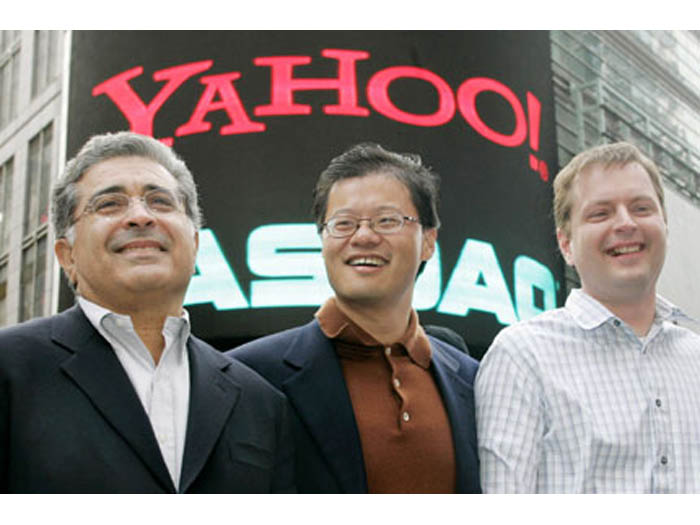Analysis: falling far behind Google, what's next for Yahoo?
No Microsoft and stuck playing a very second-rate fiddle to Google. What's next?

Yahoo! held its annual shareholder's meeting last week, and (yawn) while the sparks rarely flew and (yawn) the Microsoft banter was remarkably thin, we did learn one thing: the Internet darling has a long way to go before it can really compete with the big boys.
For starters, we don't know much about how the shareholders feel about the doomed Microsoft takeover bid. In two open forum sessions (one tied to specific addendum votes and one at the end after everyone was apparently ready for a nap), shareholders blasted the company for its policies regarding Internet privacy and executive salaries.
Lone voices of dissent
It was all a bit too granular: one person praised the company for its vast fantasy sports dominance, and another criticized Susan Decker for attending too many conferences, and how that reduced her productivity.
Okay, but what the fudge are they going to do next? Now that Microsoft has apparently withdrawn its offer, the search company seems stuck in playing second fiddle to Google. Jerry Yang, mistaking the meeting for a keynote address at CES, said several times that they are second in search, next to Google. They are second in mail, next to Google. Our view: being the second place finisher is not that glamorous. Think Dick Cheney, okay Yahoo?
When Susan Decker gave her keynote she explained how the Yahoo advertising model will now be more relevant and feature attention-getting display ads, which is revealing. She did not announce any new projects, she did not give a rallying cry to the shareholders that Yahoo was going to topple Google.
Yahoo helps you work, rest and play
Get daily insight, inspiration and deals in your inbox
Sign up for breaking news, reviews, opinion, top tech deals, and more.
Yang at least provided some visuals that explained how the company wants to be a "starting point" multiple times through your day, which means it wants you to go to Yahoo Mail and Yahoo.com to see a fresh batch of ads, which pays his salary and keeps the company afloat even while the stock price sinks like a dead fish.
Google is working on a visual search system that can find people on the Web based on its facial characteristics; it has a solar array on its roof; it is competing with Wikipedia (knol.google.com) and Second Life with Lively.com.
Yahoo needs to put a fire under the chairs of every product manager and vice president and do some serious brainstorming. No, not another strategic plan, but legitimate new features and services that create the shock and awe that a really good Internet company must create.
Half a million inactive users
Yang talked about "maximizing shareholder value" yet failed to explain how Yahoo will do that. The speakers touched on how Yahoo's services now attract 500 million users, but never pointed out how it will keep those users active. The meeting had a faint glimmer of a Vonage shareholder meeting, where talk of shareholder value deters journalists like myself form realizing that they never actually announced anything compelling or said anything worthwhile.
"Yahoo is a great brand, a brand that is recognized around the world," said Yang. That's true, but now it is time to take that brand and turn it into a powerhouse. The company must compete with Google for raw innovation. Once established as an innovative brand, one that is busily working on building the next phase of the Internet, people will start trusting Yahoo again.
Until then, we're going to (yawn) keep wondering why it was not more aggressive about negotiations with Microsoft, why Google seems to be inventing Internet 2.0 out of thin air, and why its research page and Next page seem so barren. There's still a long way to go.
John Brandon has covered gadgets and cars for the past 12 years having published over 12,000 articles and tested nearly 8,000 products. He's nothing if not prolific. Before starting his writing career, he led an Information Design practice at a large consumer electronics retailer in the US. His hobbies include deep sea exploration, complaining about the weather, and engineering a vast multiverse conspiracy.
